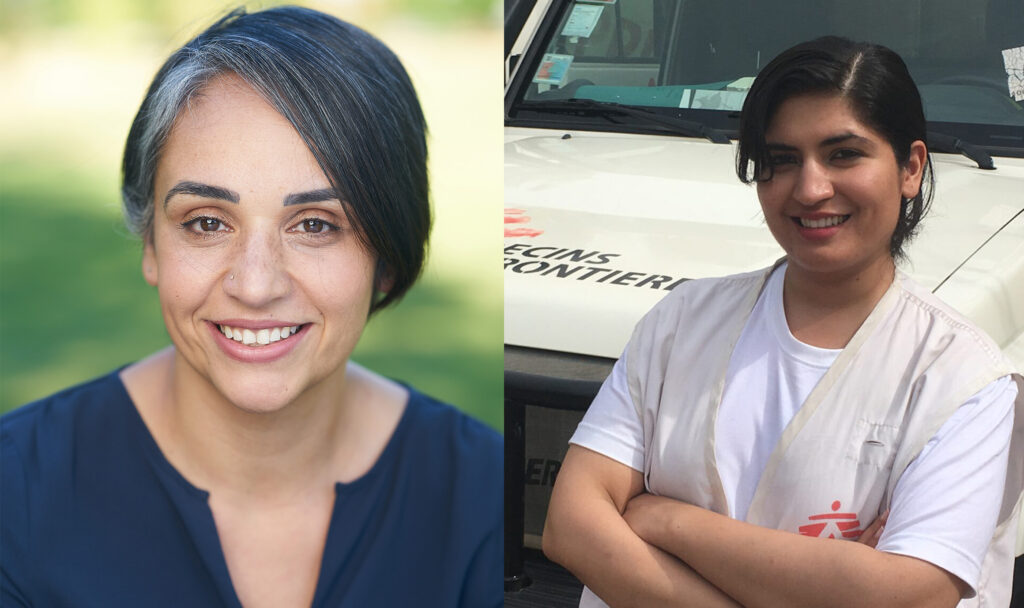Message from the President & Executive Director
Thank you for being a vital part of Doctors Without Borders’/Médecins Sans Frontières’ (MSF’s) medical humanitarian work in 2023. In the past year, MSF teams provided critical assistance to hundreds of thousands of people affected by violence – a significant component of our emergency medical work – as conflict caused immense suffering around the world. We also responded to the healthcare needs of people affected by disasters, disease outbreaks and displacement.
In April, when war broke out between the Sudanese army and paramilitary Rapid Support Forces, MSF quickly adapted our activities in Sudan to respond to overwhelming needs. Millions of people were displaced, with many forced to flee into neighbouring countries. Our teams treated thousands of people in Sudan and refugees and returnees in Chad and South Sudan for violence-related injuries, including sexual violence, and infectious diseases in displacement camps.
Offering humanitarian assistance in Sudan proved extremely challenging with the government obstructing delivery of supplies, denying travel permits for humanitarian staff and establishing a highly restrictive process for obtaining visas for international teams, forcing a temporary suspension of activities in some facilities. Despite challenges and limited international humanitarian response, our teams worked relentlessly to provide essential medical care. In some areas, MSF was the only international organization present. This was possible because of our independent funding model, which donors like you help support.
The brutal mass killing of civilians perpetrated by Hamas on Oct. 7 and the constant bombardments and attacks by Israeli forces in Gaza have caused unimaginable suffering. MSF teams working in Gaza and the West Bank – as we have for 20 years – faced unprecedented challenges as we provided emergency assistance and supported the perpetually strained health system.
Healthcare infrastructure and personnel – including our own – have been repeatedly hit by airstrikes or bullets and the physical space for safe delivery of care in Gaza has diminished. Five MSF staff were killed. Even as we continued calling for a sustained ceasefire in Gaza, occupation-related violence increased in the West Bank, where our teams offer mental health support and treat patients for trauma injuries.
In northeastern Democratic Republic of Congo (DRC), horrific violence perpetrated by the M23 and other armed groups displaced millions of people. Our teams delivered medical care to people living in undignified and unsafe conditions, including many patients with war wounds and survivors of sexual violence.
Our teams also faced security and logistical challenges in the Sahel region of Africa, where conflict between state forces and armed groups is destroying communities and cutting people off from healthcare. Our staff were not spared in the violence: two colleagues were killed in an attack in Burkina Faso on Feb. 8 as they were transporting supplies.
At the same time, the climate crisis continued to hit people in vulnerable situations the hardest. MSF teams launched emergency responses after earthquakes struck southern Türkiye and northwestern Syria, southwestern Morocco and Herat, Afghanistan. We also assisted people affected by cyclone Freddy in Malawi and Mozambique and cyclone Mocha in Myanmar and provided healthcare and medical supplies after flooding partially destroyed Derna town in Libya.
We continued to assist people who suffer injuries, including violence and persecution, as they make the dangerous journey through the heavily forested Darién Gap, heading northbound to Mexico and the U.S. Over half a million people made the crossing, twice the number in 2022, as an increasing number of people fled due to violence and poverty, among other factors, in their countries of origin.
Since the COVID-19 pandemic, we have witnessed a rise in disease outbreaks, related in part to the severe toll it took on health systems and routine vaccination campaigns. In 2023, we treated thousands of patients for vaccine-preventable diseases such as measles, cholera and hepatitis.
Our teams also responded to malnutrition crises in Afghanistan, Angola, Burkina Faso, DRC, Ethiopia, Nigeria and Yemen.
In November, MSF published the positive results of the ‘end TB’ clinical trial, identifying three new safe and effective drug regimens for multidrug-resistant tuberculosis that can reduce treatment time. In December, three years of MSF advocacy culminated in the World Health Organization adding noma – a deadly but treatable disease – to its list of neglected tropical diseases. This should encourage the allocation of much-needed resources to help tackle it.
Despite numerous challenges, more than 69,000 MSF staff worked in over 70 countries – often at great risk – to deliver medical care to people in need. This was possible thanks to the generosity of supporters like you. Your compassion and trust in MSF’s medical humanitarian action help us to stand in solidarity with people in crises and speak out about what they experience, no matter who or where they are.
